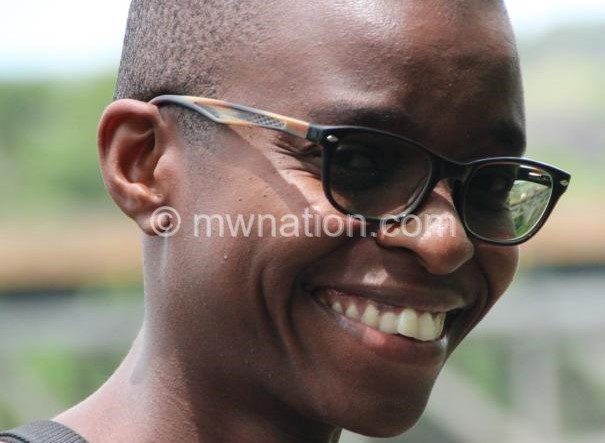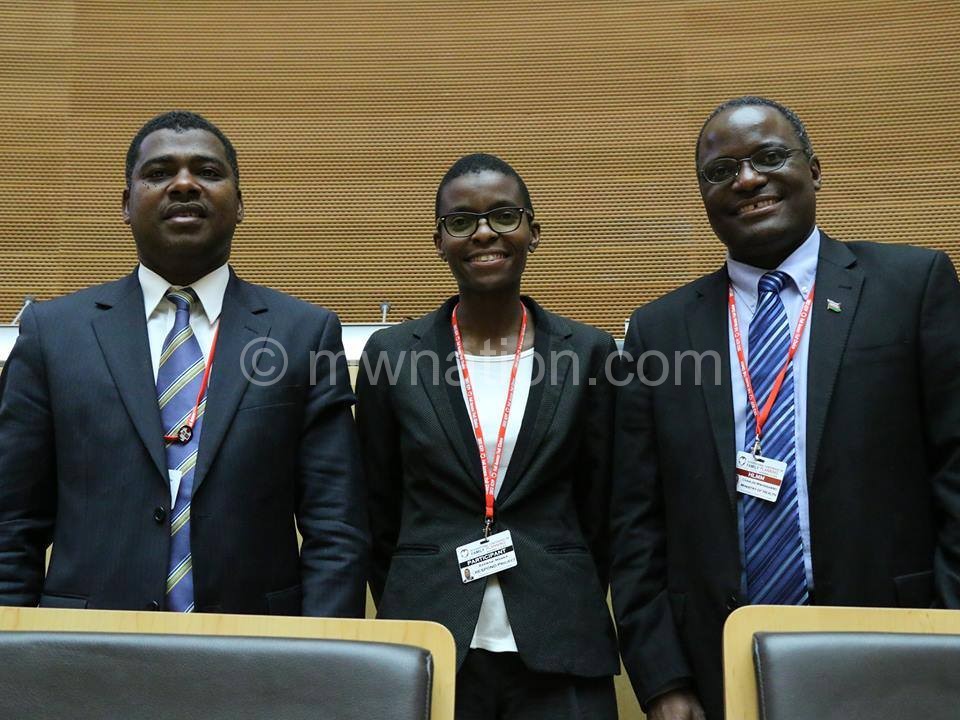Barwani Msiska: Young generation leader in family planning
Barwani Msiska, 30, is the only Malawian among the first lot of winners of the 120 Under 40 New Generation of Family Planning Leaders.
These 2016 winners of the Bill and Melinda Gates Institute for Population and Reproductive Health at the Johns Hopkins Bloomberg School of Public Health were announced late last year.

The 120 Under 40 New Generation of Family Planning Leaders recognises the accomplishments of the younger age group of leaders in family planning initiatives across the world.
Over the course of this multi-year project, 120 family planning champions under the age of 40 will be highlighted, 40 in each of the three project years, according to gatesinstitute.org.
The first group of 40 winners comprised journalists, medical doctors, service providers, advocates, researchers, and founders of nonprofits working all over the world, in clinics and universities, offices, and in the field.
All these are youth working to advance family planning and reproductive health in their respective communities and countries. Msiska who worked with the Ministry of Health and other stakeholders on long term planning, financing access to contraception for the youth and improved family planning method says her passion for family planning was ignited when she noticed the growing number of teenage mothers around her community.
“Walking down the street in my community a few years ago, I noticed a number of adolescents that were mothers or pregnant. This prompted me to ask myself and my community what we were doing to safeguard and provide second chances for their transition into adulthood.

“Knowing that family planning is a vehicle that breaks the cycle of poverty fueled my passion to do something about it in order to see that change. Family Planning empowers adolescents to control their fertility and plan their future,” she says.
Through the Respond Project and Reproductive Health Directorate she worked with all districts in developing goals for contraceptives prevalence rates as well as helping districts to prioritise family planning in their budgeted implementation plans.
“We also increased the national budget allocation to family planning, adolescent health and use of reversible and permanent acting methods. All these contributed to Malawi’s family planning 2020 commitments,” she says.
Msiska also co-initiated the client oriented provider efficient services approach for contraceptive security in 18 health facilities, increasing access to contraception, improved logistics management and also quality of care.
Apart from that, through Health Policy Project, Msiska led a multi-disciplinary team in the development of Malawi’s first five year strategy for Youth Friendly Health Services (YFHS) 2015-2020 which was approved by the youth, government, donors, civil society organisations, parents and local leaders, re-positioning and providing a benchmark for YSRHR interventions.
The strategy was developed after the Ministry of Health found the need to have a robust adolescent and youth sexual and reproductive health strategy in an evaluation of young people’s access to health services. She also supported the design and implementation of the first YFHS program evaluation.
Through National Youth Council, she also initiated partnerships with radio stations, raising awareness of Sexual and reproductive Health (SRH) information and services among the youth.
One of the biggest challenges she has faced in her efforts to scale up family planning in the country, she says, is the limited coordination and collaboration among stakeholders in Sexual and Reproductive Health and Rights (SRHR).
This often leads to duplication of programmes as well as gaps in leveraging expertise and resources towards improved youth SRHR outcomes.
“We have a lot of policies as a country, but there is little translation of those policies on the ground. That is the gap I want to close,” she notes.
Msiska further observes that everyone has a role to play in bringing about the desired result in family planning.
“Not one person or organisation can do everything; and not one person has the skills and resources to do everything. It is everyone’s duty. My dream is to be at the centre and coordinate all the skills and resources, to ensure we achieve the goals,” she says, adding that there is need to get more young people working at the intersection for polices and interventions that are reflective of the needs on the ground.
However, Msiska remarks that there is a high unmet need for family planning in hard to reach areas and among the youth.
She believes that this can be tackled by increasing the capacity of health facilities to provide immediate postpartum family planning and public private partnerships to support delivery of integrated SRHR services.
“Mentoring of youth leaders in family planning advocacy and evidence based programming is yet another way to get around this challenge. Apart from that, sustaining advocacy for family planning budget line in the national budget and long term campaign on modern family planning methods including adolescents’ fertility needs could also help,” she explains.
Looking ahead, she would like to contribute to the expansion of comprehensive reproductive health services and information, especially Long-acting reversible contraceptives (LARCs) for the youth, to reduce the high adolescent fertility in Malawi.
She also plans to advocate for local financing for the national family planning programme beyond the national budget through private public partnerships and social entrepreneurship for health.
Additionally, she would like to build a collaborative platform to lead a youth mentorship programme and implement scientific research for sustainable and adaptable SRHR interventions.
Born on 26 March 1987, she is the last born of four children who grew up in Lilongwe and went to Mary Mount and Macy Williams secondary schools. The young woman who comes from Chanjati Village, Traditional Authority Chikulamayembe in Rumphi holds a Bachelor of Arts in Community Development attained in 2009 from Daystar University in Kenya.
She graduates in May 2017 with a Master’s at the Rollins School of Public Health, Emory University in Atlanta Georgia.
The 40 winners for 2016 were chosen through public online voting, scoring by a jury of experts and leaders in family planning, and the project secretariat, and the winners each received $1 000 (about K730 000) from the Gates Institute to continue their work in family planning.
A smaller representative group of winners have been invited to attend the 120 Under 40 celebrations in the United States from September 21 to 23 2017.
These celebrations, which coincide with the United Nations General Assembly meetings in New York, will include training in advocacy and leadership, meetings with influential leaders, and opportunities for the winners to share personal stories about their passion for family planning and reproductive health.
The first year of 120 Under 40 officially ends on World Contraception Day, September 26, an annual day of observance organised by Bayer to focus international attention on contraception, especially young people’s need to access contraceptive and reproductive health information, services and supplies.





